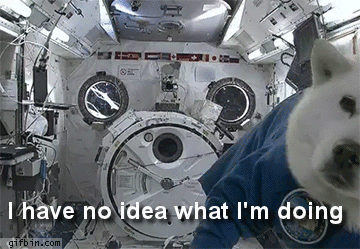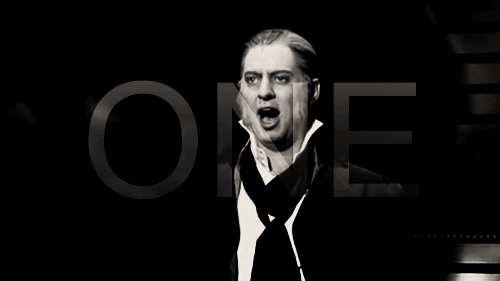Frum Girl’s Guide to High Holidays Services

Image by Comedy Central
EDITOR’S NOTE: We recently stumbled on the Tumblr and spent too many work hours since clicking through GIFs on kapparot. We asked her to create a survival guide for the High Holidays so you can enjoy her wise words as much as we do.
Ahhh, September. It’s that time of year again. No, I’m not talking about Pumpkin Spice Latte season. I’m talkin’ bout
THE
HIGH
HOLIDAYS!!!
Okay, so maybe it isn’t the easiest thing in the world to get turnt for all the super exciting holidays coming up. But I’m here to tell you. YOU CAN GET THROUGH IT. You CAN!!
First things first, figure out when the F these days actually take place this year. This will involve the following:
- A calendar
- Judging people on the internet for how they spell out Hebrew words phonetically
If you already have a Jewish calendar app well then number one, congrats on being an overachiever. Oh and also,
Dates: ASSEMBLED!
Moving on.
Rosh(e) Ha(h)shan(n)a(h) this year begins on a Sunday night, September 13th, and ends Tuesday night, the 15th.
Yom Kippur begins the evening of Tuesday, September 22nd and ends on the evening of September 23rd.
Now that the dates are in your calendar. Time to break the news to your boss/teachers!
And picture their reactions
Especially when they try to figure out if asking you to check your email on Yom Kippur is something they can get sued for
Once boss/teachers have been reassured that all work missed will be made up for in triple fold along with a notarized apology note, it’s time to move on to holiday plans!
The High Holidays are about starting off the Jewish New Year with a clean slate. They are about self-reflection, forgiveness, and committing to working on becoming a better person. The prospect of facing this can be overwhelming. This is why we bribe ourselves with brisket after services. (Except for Yom Kippur. On Yom Kippur you’re on your own. Sorry.)
Let’s say you find yourself at a synagogue with a fabulously inspiring Rabbi, a Chazzan who knows exactly the right amount of singing to do before it becomes obnoxious, and fellow congregants that won’t spend the entire morning distracting you as they loudly exchange stock tips. Guess what? Odds are, you’re still gonna have moments where you’re just like
Stumbling over prayers that only come around once a year
With a dash of
And a hint of
Which inevitably leads to
But you know what? We’re human. The goal is not to be perfect; it’s to be the best version of ourselves that we can and look forward to the year ahead. So pack up that guilt and focus on the positive: At least you’re not at work.
Now I’m not gonna lie. There’s some scary stuff out there in the Yom Kippur prayers.
Factor in the whole no-food-or-water-for-26-hours thing and it can be pretty intense. Spoiler alert:
Plus, y’know, there’s the whole part where you’re asking God to keep you and everyone you love alive/healthy/happy for another year so it’s just like
But here’s what I finally realized: The anticipation of the holidays can be scarier than the actual day. My motto for the day before Yom Kippur is basically like
But then once it actually arrives, somehow you begin to appreciate how the absence of the physical helps narrow your focus on the spiritual. You pay attention to what you’re saying (pro tip: don’t be afraid to say stuff in English), you take stock in your life and yourself. By the end of the day, at Neilah (the final prayers of Yom Kippur), you’re just like
And then, when it’s all over you get to hear a Shofar and turn to your fellow Shul-dwellers and be like
And then you’re just like, you know what
Happy New Year, everybody!
A message from our Publisher & CEO Rachel Fishman Feddersen

I hope you appreciated this article. Before you go, I’d like to ask you to please support the Forward’s award-winning, nonprofit journalism so that we can be prepared for whatever news 2025 brings.
At a time when other newsrooms are closing or cutting back, the Forward has removed its paywall and invested additional resources to report on the ground from Israel and around the U.S. on the impact of the war, rising antisemitism and polarized discourse.
Readers like you make it all possible. Support our work by becoming a Forward Member and connect with our journalism and your community.
— Rachel Fishman Feddersen, Publisher and CEO









































